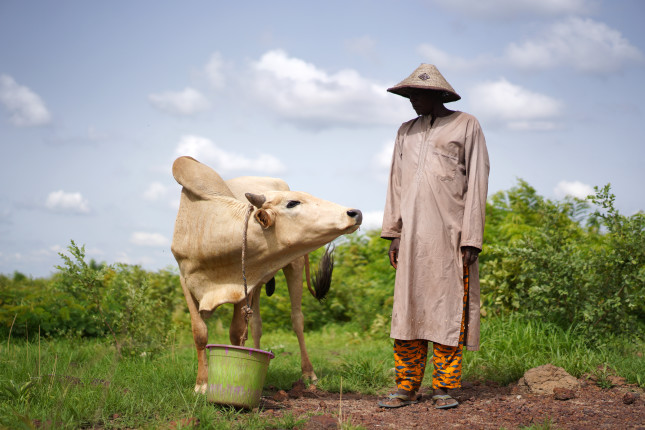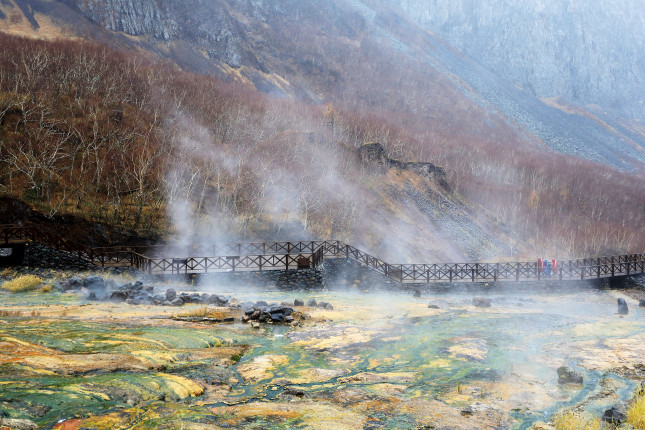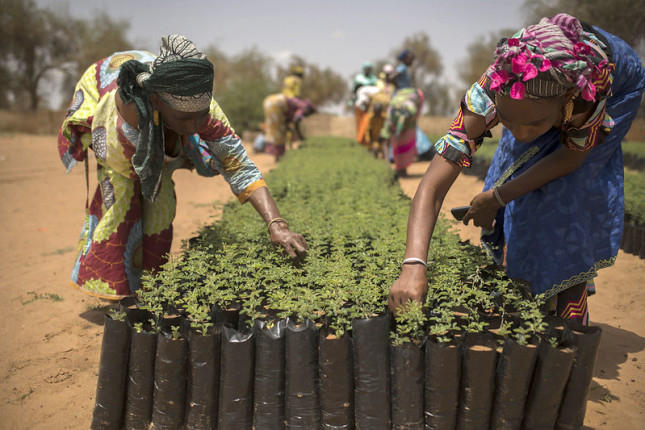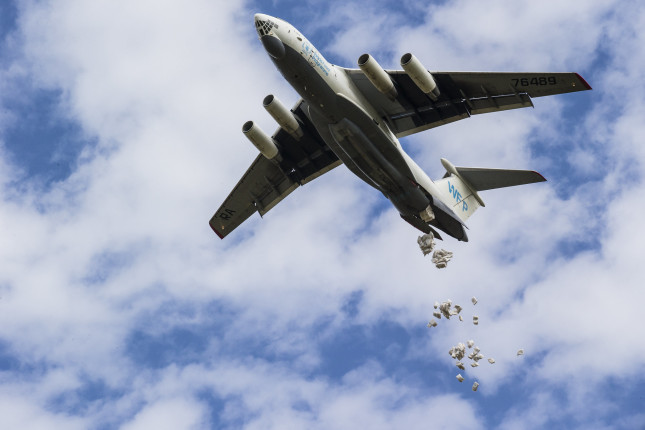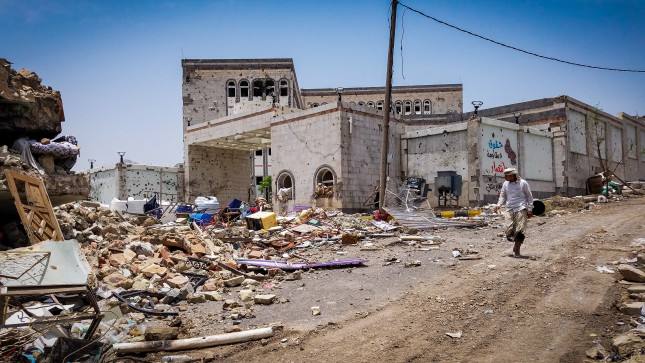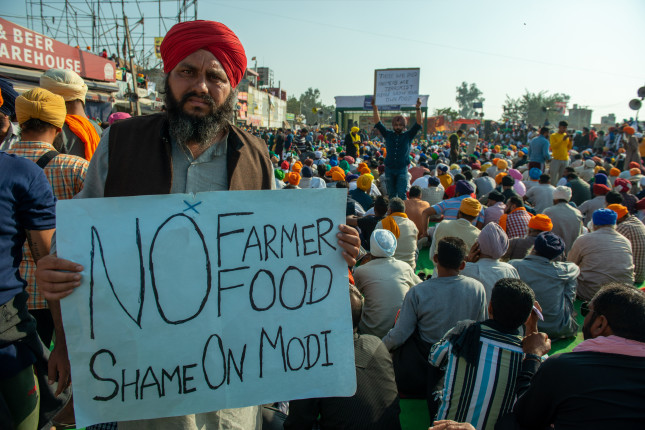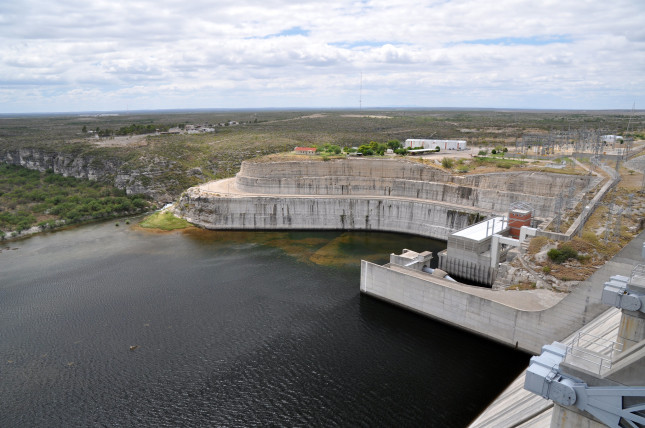-
Migrating to Adapt to Climate Change, Tunisians Lose Their Way of Life
›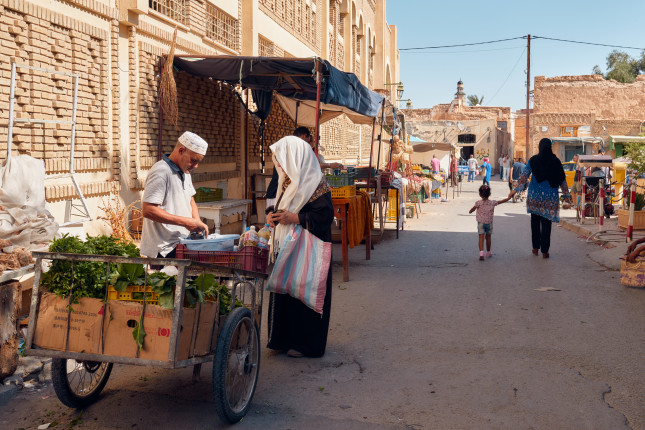
“After a series of poor harvests, limited rainfall, and an increase in the price of fertilizer, farm work has become unprofitable,” said Lazher, a fellah (agricultural laborer) from Tataouine in the rural south east of Tunisia. The 45-year-old had worked the land for half his life, even dropping out of school early to support his young family. However, when I met Lazher in December 2021, he was making the final arrangements to migrate to Tunisia’s capital, Tunis, in search of better job opportunities. Now, with diminishing local opportunities for agricultural work and few local companies that might hire unemployed laborers, Lazher secured work in one of Tunis’s many dried fruit shops called hamas.
-
To Fight Climate Change and Insecurity in West Africa, Start with Democracy
›Secretary of State Blinken is right to focus on climate change and democracy during his first trip to sub-Saharan Africa. At the top of his and everyone else’s mind should be the question: will democratic backsliding in countries like Benin make it more difficult to deal with the effects of climate change? Even more worrisome: will it worsen conflict hotspots, such as the West African Sahel, where climate change is playing a role? All eyes should be on coastal West Africa as countries such as Benin deal with violent insecurity and climate pressure creeping down from the Sahel. My ongoing research in Benin suggests that the country’s democratic local institutions, despite all their faults, are the country’s best defense against the breakdown in rural governance that has befallen Mali and neighboring Burkina Faso.
-
U.S. and Chinese Aquaculture Taps into a Carbon-Free Geothermal Energy Source
›
From Friday night fish fries to shrimp cocktails, people sheltering in place have learned how to cook their favorite dishes at home. As a result U.S. seafood sales have doubled during the pandemic. Globally, the United States ranks fifth in seafood consumption and China—where hunger for seafood has skyrocketed with rising incomes—is number one. While wild fisheries are on the decline, aquaculture is expanding to increase the global food supply.
-
A Conflict Prevention Agenda Should Inform Climate Change Actions in Africa
›
In Africa, climate change and population expansion are increasing fragilities and vulnerabilities—including contributing to conflict dynamics—for many people who directly depend on nature. To cope with how their environment can no longer supply livelihood needs, people are migrating in search of security or economic stability. These factors interact with one another in ways that underline the need for inclusive conflict mitigation considerations in climate change action.
-
Feeding Peace
›
The impact of conflict on food security is well documented. But does food security and feeding the hungry really contribute to peace, or is it an exaggeration? Some argue that food insecurity can contribute to political instability and renewed violence in conflict-affected environments. In contrast, others say that brokering peace is a complex process, determined by many variables. To explore this question, this blog describes the instrumentalization and weaponization of food insecurity in conflict, addresses the role of humanitarian interventions, and the key role of government in building lasting change.
-
Towards Better Protecting the Environment in Armed Conflict
›
Environmental dimensions of armed conflicts
Years of armed conflict have devastated Yemen’s environment, contributing to one of the worst humanitarian crises in the world. Attacks on water infrastructure cut off thousands of people from access to safe drinking water, exacerbating a cholera outbreak that has caused an estimated 4,000 deaths since April 2017. Fighting also damaged Yemen’s agricultural infrastructure, contributing to the food insecurity of an estimated 16.2 million people.
-
Zafar Imran, Le Monde diplomatique
Climate Change in the Indian Farmers’ Protest
›
The ongoing farmers’ movement in India has taken the world’s largest democracy by storm. Hundreds of thousands from all over the country have laid siege to New Delhi for more than two months. As both the protestors and the government dig their heels in, the chances of confrontation and violence are increasing by the day.
-
U.S., Mexico Sign Rio Grande Water Agreement
›
U.S. and Mexican officials settled a water dispute that had been simmering for several months and led to protests by Mexican farmers concerned about water access.
Showing posts from category agriculture.


